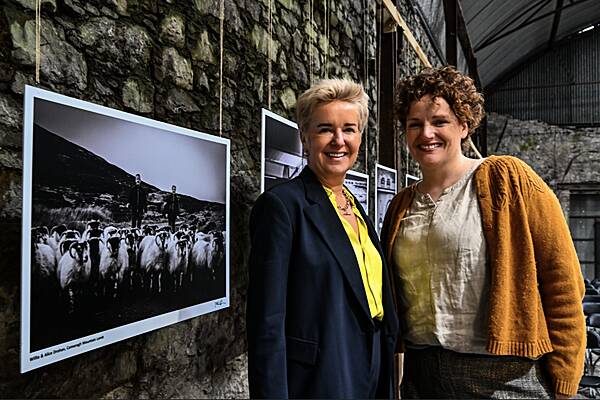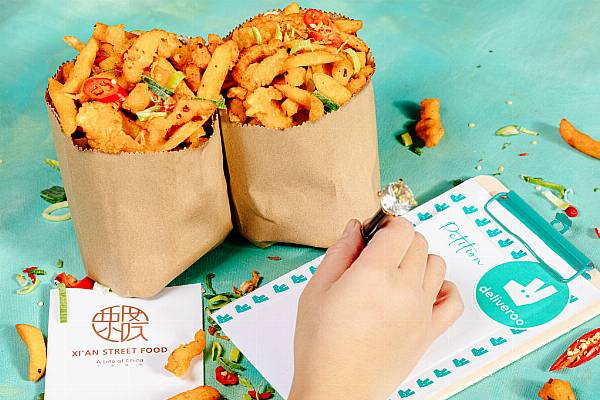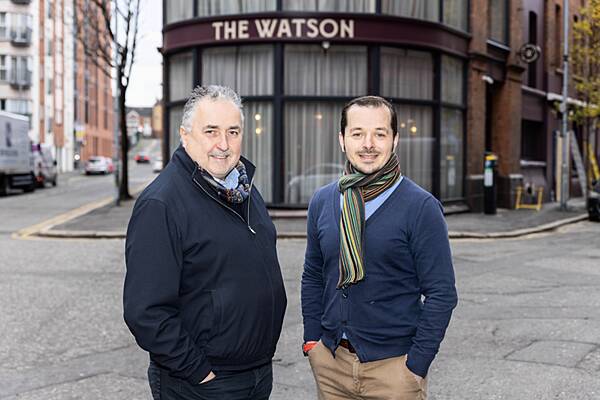Michael Winner was a great restaurant critic. Not because he had the subtlest palate in the world, or because he had any training in restaurants. Or even because he could cook (he couldn't). But because he was an exacting person with ordinary culinary tastes – us, basically, at our most demanding – and because he made restaurants fun. He lifted the lid on a particular type of high-end hospitality, almost by accident, and was among the first to tap into the public fascination with restaurants. Michael Winner died on January 21st aged 77. Six years ago, Emily Hourican interviewed him for this magazine, and found him to be just as sharp-witted, charming and irrascible as expected. Here, we reprint some of that interview, as a reminder of a man who added greatly the gaiety of several nations.
“Don’t be late dear. We don’t admit late-comers.” Michael Winner’s crisp telephone parting-shot is all too typical of the persona he has created within his Sunday Times restaurant column. Irascible, condescending, impatient, demanding. And highly effective. So effective that I’m early, and end up pacing the street outside his fabulous house in South Kensington. Passing neighbours eye me with sympathy. One man, when I ask him the time, checks his watch, then jerks his head in the direction of Winner’s gate, “you don’t want to be late for him,” he says with wry humour. On the dot of the arranged hour I ring, vaguely wondering whether that “we don’t admit latecomers” was a royal “we”. Apparently not. The woman who comes to the gate is Winner’s housekeeper. In the background are two sober-suited maids with mops and buckets. There’s a team in place, to deal with the larger-than-life construct that is Michael Winner.
Until the mid nineties, Winner was a film director. He directed nearly 50 films and worked with some serious A-listers: Marlon Brando, Charles Bronson, Julie Christie, Lauren Bacall, Oliver Reed. Many of them became good friends, and even his relentless name-dropping can’t disguise the fact that he was genuinely close to them. This second career as food critic was almost accidental. At dinner with the then-editor of the Sunday Times, Winner was asked to write “something.” He said “yes, I’ve had a terrible time at Terence Conran’s restaurant. I want to write an article to get revenge on all those restaurants that have annoyed me over the years.” When the piece was published, the outcry was huge: “it caused an enormous furore. It was beyond belief; everyone was writing and talking about this article. So I did a second one to answer some of the points that had come out in the first one.” That too got major attention. So much so that Andrew Neill, amazed at the apparent interest in food, decided to inaugurate a page called Restaurant Watch, in which celebrities wrote about their restaurant experiences. Winner was asked to contribute a 300-word side panel, and agreed, “for a few weeks.” After about three weeks, Andrew rang back “saying, ‘I’m fed up with paying these luvvies’ – because actors only want to say nice things – ‘and what are you doing?’” He offered Winner the whole page.
Winner’s condition was that he would never go anywhere for The Sunday Times. “I said, this won’t last long, but somehow or other I have scraped through, going where I want.” Another condition was that his copy be left alone. “I resigned once because they were making silly changes, and Andrew wrote to the then editor of the Style section and said ‘I would like to make it totally clear that unless Michael is totally happy with the way his column is handled, you’re fired.’ That was a wonderful letter,” and he sighs fondly.Although he is paid handsomely for what he writes, it is Winner’s proud boast that he charges no expenses and pays for everything himself. “How can you write a review of a hotel if you’re on a freebie? It’s ridiculous. I have to fight to pay. If they absolutely refuse, I give the waiter £150 or so. I will not accept anything for nothing. I am a punter using my own money.”
The other great strength of his column is that he isn’t a foodie. He has never trained as a chef, doesn’t cook, and likes very simple, plain fare. Which makes him rather like the rest of us I suppose. “I am writing a humorous column. I continuously say a three-year-old child knows more about food than me. This is not strictly true because I was brought up eating very fine food from the age of five or less, but I can’t describe the content of the food. Gordon [Ramsay] is quite right, I can’t tell you what’s in the sauce, I can’t identify flavour. I can just say whether I like it or don’t like it. I can possibly say whether it’s salty. But I don’t believe people want a chemical analysis of the sauce.”
In Winner’s world, phonecalls regularly come through from major newspapers, getting his reaction to this and that. Once it was the Telegraph, ringing to ask for Winner’s response to a Gordon Ramsay quote ‘Michael Winner knows nothing about food.’ “I said ‘God the truth hurts.’” Ramsay had already rung himself to say that. ‘whatever appears in the Telegraph tomorrow, I didn’t say it,’ which, as Winner correctly identified, means “you knew he said something that he now regretted. But I adore Gordon.”
In fact, he believes readers “trust me because I’m not a professional reviewer. They read the column because its funny, they get a laugh. The Sunday Times’ professional reviewer is of course AA Gill, who was at school with Winner and even, briefly, his gardener. Was he a good gardener? “I doubt it. The gardens were horrific. All the people employed by this firm were pretty hopeless.”
So how seriously does he think his non-professional reviews affect a restaurant or hotel business? “I am quite certain that if I praise a restaurant it has a huge effect on business. Enormous. They turn up sometimes, years later, holding the review and ordering the same food. I was sitting in Venice in a restaurant once that very few people know of run by five old ladies called the Ferrini sisters. I was sitting in the window and some Englishmen walked past and they held up the review I had done of the restaurant three years earlier. People have said that they come in and ask for what I have had. They ask for the same food. I don’t think I can close a restaurant but maybe there are a few that I helped get rid of. My review is not going to close a restaurant that was good, but it may well interrupt the flow of business.”
Does that ever make him feel guilty? “People have said to me ‘people are cancelling this hotel because of what you have said about it.’ Well that’s too bad, what do I care? I’m a film-maker, we suffer terrible reviews all the time and we don’t go crying about it. We don’t ban the critic from seeing the film.”
Where he parts company with this man-of-the-people approach is his attitude to seating. He has often said he doesn’t go to restaurants, he goes to tables, and is pathological about where the simple, plain fare he favours is consumed. And he has no truck with skulking in anonymously in order to catch the kitchen out. “When I started doing this Faye Maschler (fearsome critic of the London Evening Standard) and I were going to have lunch and she said’ don’t book it in your own name, I never book in my name’. I said ‘why not; once you get there they all know you.’ She said, ‘yes but if I book in my name they may buy the food in specially.’ I thought that was ridiculous, until on quite a few occasions, restaurateurs would say to me, pointedly, ‘we couldn’t have bought that food in specially for you, could we?’ Which meant they had! You may well get better service, but over all, I think people are incapable of being different to what they are. They all think they are good you see. They are incapable of change.”Winner rarely writes about chefs, preferring to judge the entire experience, and not just the food. “It’s no good having great food if you don’t have good ambience. I can’t say the food at the Ivy is fabulous, but its comfortable and it’s a good place to go. We know that Gordon Ramsay is right at the top of the three-star range, but I don’t want to go to his restaurant when he’s not there. I’m sure the food is just as good, but I want to know that the guy whose name is up, is there.” On top of that, he requires “someone who you can relate to in the room. A manager, an owner. I like to feel humanity, I like to be comfortable, I don’t like it to be too noisy. The food is to a degree secondary.”The worst sin a hotel or restaurant can commit is, he believes, “arrogance, which you are met with by many chefs and restaurateurs here. You go to a restaurant and some po-faced woman who thinks she is important says, ‘have you got a reservation?’ Not good evening, not a smile, you’re a non-person. If anyone ever says that to me I say, ‘go back to receptionist school,’ and I walk straight by. Then they say Winner’s rude. But it’s supposed to be the hospitality industry. I would like someone to start off being hospitable.”
He still insists that he figure in the Sunday Times column “is a comedy character, its not me.” Well, if it is a joke, it’s one the rest of us are copping on to more and more.
Michael Winner, October 1935 - January 2013









